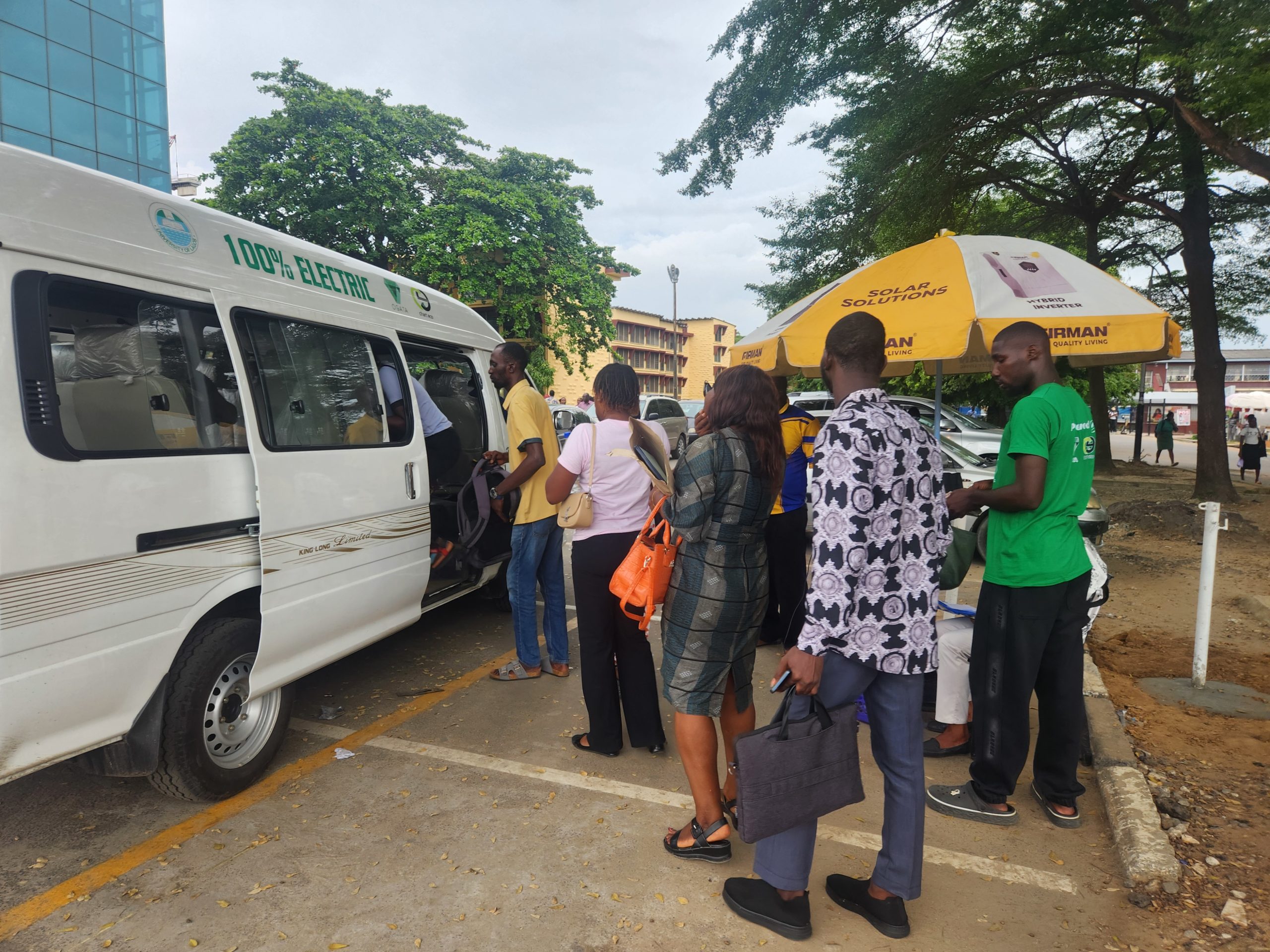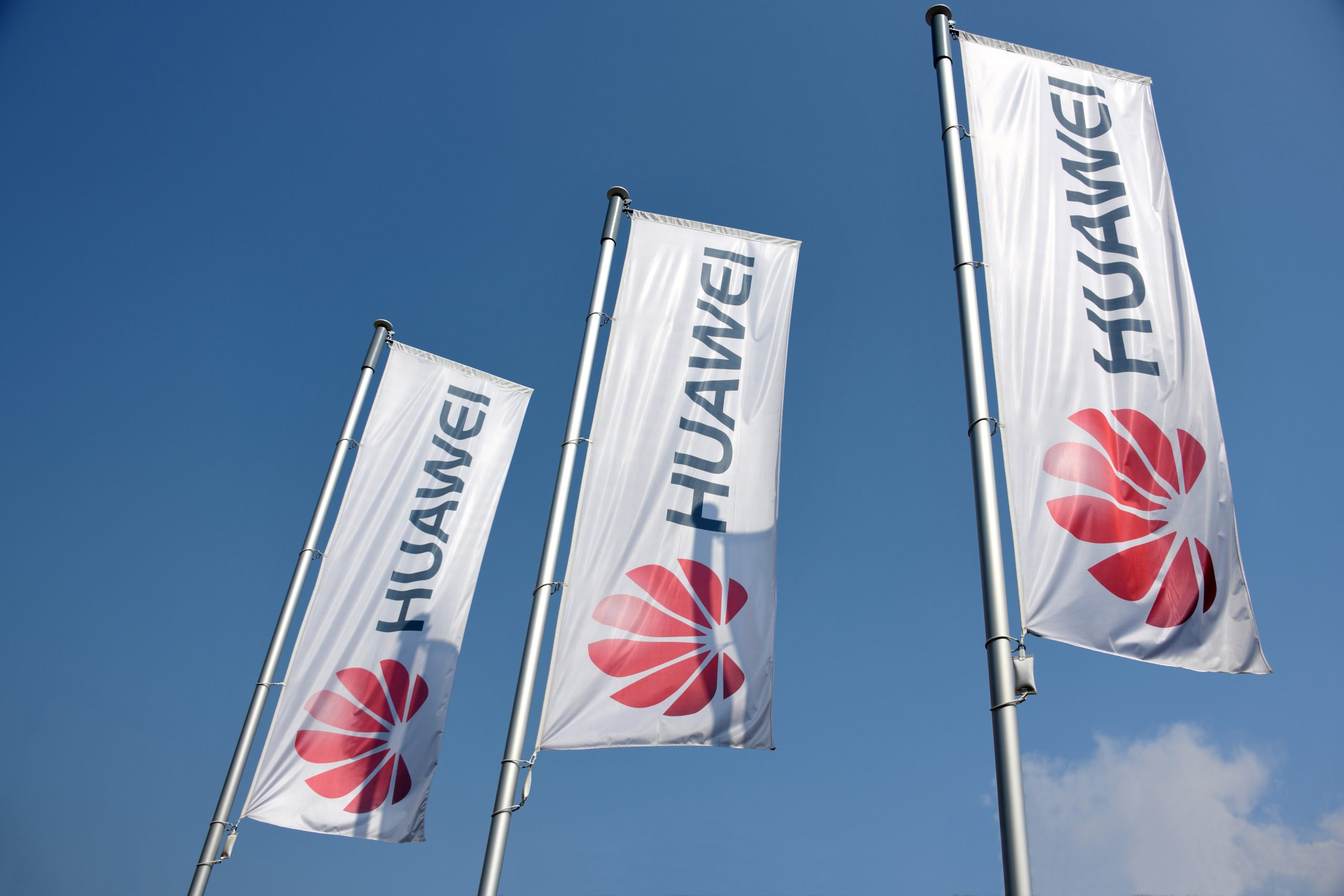Abigail Adekunle, a geophysics student at the University of Lagos, is standing in line waiting for a bus; one of a score of electric buses shuttling students and faculty from one end of the campus to the other.
Since the deployment of the electric buses, the familiar line of students waiting for cabs at the campus gate has quietly disappeared. “It is affordable, and its last bus stop is closer to my faculty,” Adekunle says. “Although I wish they could provide more buses to eliminate the long queues.”
Once a bus arrives, Adekunle will pay ₦100 in cash or with a Cowry card and board the bus which will launch out quietly, leaving no trail of smoke.
In December, 2024, Chart Eco Global Services, a sustainability organisation, in partnership with Ogata Global Resources, launched ten electric buses on campus to reduce transportation fares by 50% and lower carbon emissions. Both Henry Eke (Chairman, Ogata Global Resources) and Itunuoluwa Okusami (CEO, Chart Eco Global Services) are former students of the university.
Six months since the deployment, the buses are changing the ways students’ commute around campus.
Before the deployment of the EV buses, cabs were the primary mode of transportation within the campus. Fares were fixed at ₦50 but jumped to ₦200 after then newly elected President Bola Ahmed Tinubu’s government removed fuel subsidies.
The electric buses have now become the dominant choice. The electric shuttle system launched with ten buses, which has since doubled. Okusanmi, who currently manages the buses’ campus operations, noted that they will acquire an additional ten buses this year to eradicate queues and adequately cater for all commuters.
Students say that the electric buses are more comfortable and convenient than the cramped back seats of regular cabs.
Law student Olajumoke Akinmusere said she preferred the electric buses because they cost less than the campus cabs. “Although I still take cabs whenever I am in a hurry for classes to avoid the queues.”
However, preference for commuters with Cowry cards over those with cash remains a conundrum. “I don’t understand why. There can be a long queue, and you feel excited to board the long-awaited bus, only for them to prioritise people with a Cowry card and leave others in the line regardless of the position they arrive,” Akinmusere said.
Image Source: Azeezat Olatunde
Before EVs
Before the electric buses, students primarily commuted via cabs managed by the Unique Transport Association. In addition, there were campus shuttles (yellow Danfo buses) that transported students from the Yaba and Bariga areas to campus. Occasionally, these shuttles would also pick up students within campus boundaries en route to their designated station at the Centre for Information and Technology Systems (CITS) bus stop.
In May 2023, President Tinubu announced the removal of Nigeria’s long-standing fuel subsidy. This policy shift caused petrol prices to surge from ₦185 per litre in early 2023 to as high as ₦1,025 in 2024, though prices varied slightly across regions. As fuel costs soared, campus cab fares also climbed steadily, rising from ₦50 to ₦70 in mid-2023, then to ₦100 and ₦150 over the following months, before reaching ₦200 by December 2024.
These increases strained students’ pockets and altered their commuting habits.
“I was initially happy about getting a room at Kofo hostel because it’s big,” said Ameerah Junaid, a 300-level mass communication student. “But when transport fares became expensive, I stopped going back to my hostel during class breaks. If I couldn’t afford to wait in line when there’s a long queue in the evening, I’d just walk or stay around my department until there was no queue.”
According to Ganiu Hassan, vice chairman of the cab operators’ union, about 150 registered cars operate on campus. There is always a queue and long wait times during the peak hours of 8:00 a.m. and after lectures, leaving many students to either walk or delay their movement entirely. While there is no official data on the number of commuters they get, he acknowledged a noticeable decline in patronage since the launch of the electric buses in December 2024.
How it is operated
Oluwaseun Oluwafemi, the field supervisor of the EV shuttle system, explained that they have two types of buses. One can operate for up to three hours on a full charge, while the other lasts approximately five hours.
Out of the twenty buses on campus, twelve are deployed daily, each completing an average of 60 trips between 7:00 a.m. and 7:00 p.m.
The buses transport an average of 6,000 students daily. The morning rush peaks at the campus gate, while evenings are busiest at the campus station, reflecting the flow of students heading to classes and returning to their hostels.
UNILAG’s charging station, located in the engineering department, contributed to it being the ideal place to start the EV bus operation. “We initially planned on charging our EV buses there,” he disclosed.
However, the institution provided a space in the Academic Publishing Centre for them to establish a charging station and park their EV buses.
Giving back
Okusanmi, an alumni, frequents the University of Lagos campus, and on one occasion, noticed that cab fares had increased to ₦200. This worried him; indigent students may find it hard to move around for their school tasks, a concern that was validated by the number of students he observed walking to and from lectures halls and department buildings.
“Once you identify a problem, instead of going to sleep, you develop innovations. That’s exactly what we did,” Okusanmi said.
His two-year-old Lagos-based company, Chart Eco Global Services, audits carbon emissions for organisations of all sizes, providing them with the tools to measure, manage, and reduce their carbon footprint.
“When we identify a problem, we partner with technology providers to achieve our aim. In this instance, we collaborated with Ogata Resources to provide the electric buses, while ours is to account for these emissions savings to see how they can be monetised and propagated across the board,” he explained.
Though an alumni-led initiative to give back to the university, the deployment of the buses also has social, environmental, and economic impacts, Okusanmi said, adding that the university’s environmental policies and commitment to an eco-friendly campus made the execution process seamless.
The current university administration, led by Vice Chancellor Prof. Folashade Ogunsola, has a carbon emissions reduction mandate and has employed a number of avenues to achieve this, according to Dr. Abdulganiy Adelopo, UNILAG’s Green Hub (recycling education centre) coordinator and Principal Quality Control Officer for Waste, Water, Sewage, and Environment. These avenues include tree planting and waste management among other innovative measures.
“If you look at the volume of individual transit in the university, some evaluations give it at a minimum of 50,000 to 70,000 people taking a trip per day,” Adelopo said. “The carbon generated per vehicle conveying people from the bus stop to the other end is enormous. These electric buses operate with zero emissions, significantly reducing the carbon footprint of the university.”
The institution has also collaborated with Lafarge Africa Plc to convert waste products into energy, highlighting its commitment to building a sustainable environment.
Adoption of EV Shuttle System
Okusanmi says students’ reception of the buses in the past months have been delightful. Not only has it been met with positive reviews, students are independently creating content on Instagram and TikTok to share their positive experiences with the buses. “You would think we paid for the content, but never did. The students are giving us free PR after enjoying our services,” he said.
Addressing the choice to prioritise people with Cowry cards over cash, Okusanmi revealed that the organisation intends to fully automate the payment system.
“We have been looking for means to disseminate the information to the public. Our initial plan was to have an automated payment system. However, the service providers we met sold their cards for ₦2,000 or more, while a Cowry card costs ₦500. I know that most students will not be able to afford it,” he said. “We are student-oriented and want the best for them,” he said.
The company has employed various means to encourage more students to use the Cowry card for more subsidised fares, he said, including favouring card-carrying commuters over those who prefer to pay with cash.
Maintenance challenges
While students enjoy a seamless experience, running the system behind the scenes is anything but smooth. Typically, using solar energy and electricity would have drastically reduced the cost of running the busses. However, the disheartening electricity tariff hike to ₦209.5/kWh has triggered widespread concern among households, businesses, and academic institutions. This sharp increase in electricity bills is one of the operational challenges of running the buses, according to Okusanmi.
Maintenance remains a major challenge. “If there’s an accident, a regular mechanic can only fix the basic mechanical issues. We often have to import spare parts and sometimes adapt local components to work with our buses.”
He pointed outside his office at a bus whose front tire had been removed. “That bus is grounded,” he said.
Expansion plans
Okusanmi describes the operation in UNILAG as a test case for the bigger plans they have.
Across the country, adoption of the electric vehicles is still in its infancy, with only 15,000 to 20,000 electric vehicles currently operating on its roads, accounting for no more than 0.5% to 1% of the entire vehicle base. This is well below the country’s target of 7.5% EV adoption by 2025 and 40% by 2040.
As Nigeria navigates policy pivots toward CNG-powered vehicles, infrastructure gaps, and unstable electricity, the UNILAG shuttle system offers a glimpse of what’s possible in spite of challenges.
“So the bottom line for now is to see how we can establish ourselves on this campus, after having a good proof-of-concept case study. By then, we’ll be open to many partnerships, grants, and funding opportunities from various sources. The idea is for us to establish ourselves here first, then see how it goes,” Okusanmi said.
Mark your calendars! Moonshot by is back in Lagos on October 15–16! Join Africa’s top founders, creatives & tech leaders for 2 days of keynotes, mixers & future-forward ideas. Early bird tickets now 20% off—don’t snooze! moonshot..com












